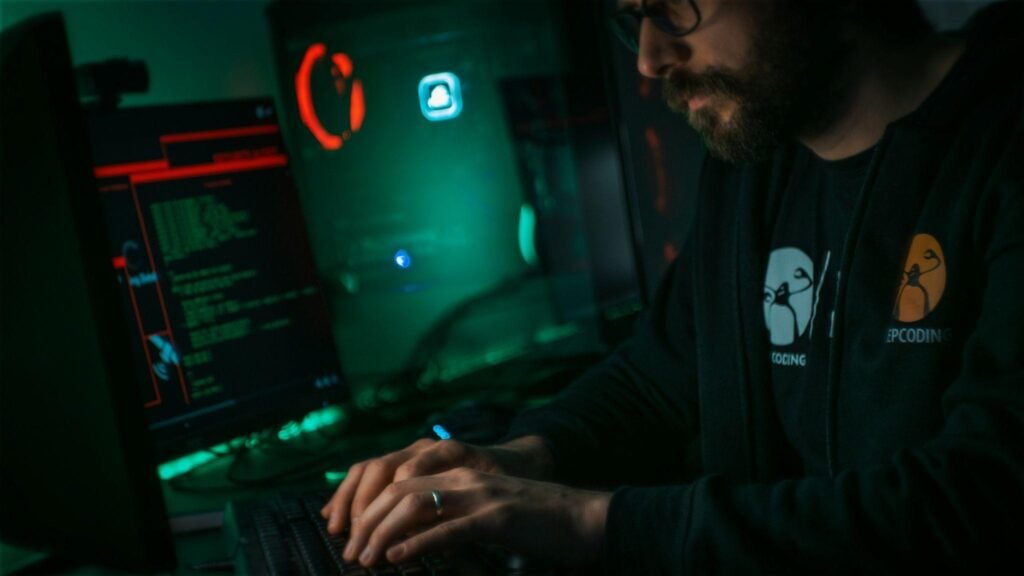The casino industry is a prime target for cybercriminals due to the vast amounts of sensitive data it holds, from financial transactions to personal information. The complexity of cybersecurity in this sector demands detailed attention to various vulnerabilities and proactive measures.
Casinos have seen a significant rise in cyber threats. For example, in 2023, a cyber attack on MGM Resorts led to a major disruption, affecting operations and exposing sensitive data. Such incidents highlight the need for robust cybersecurity measures. The National Indian Gaming Commission reported that cyber attacks on casinos have increased dramatically over the past few years
Data Breaches: The Silent Invaders
Data breaches are a major concern. Casinos store massive amounts of personal and financial data, making them lucrative targets for hackers. In 2023, there was a 20% increase in data breaches across industries. Casinos, with their extensive customer databases, are particularly vulnerable. A breach can result in severe financial losses, legal repercussions, and damage to reputation.
One of the biggest threats is phishing attacks, which have become more sophisticated. Cybercriminals use advanced techniques to trick employees into revealing sensitive information. Training staff to recognize and respond to phishing attempts is crucial.
Additionally, implementing multi-factor authentication (MFA) can add an extra layer of security, reducing the risk of unauthorized access.
Ransomware: Holding Casinos Hostage
Ransomware attacks pose a significant threat to casinos. These attacks encrypt the victim’s data and demand a ransom for its release. In 2024, the average ransom demand has skyrocketed to over $5.3 million, with some cases exceeding millions. The increase in demand highlights the severe financial impact these attacks can have, along with the downtime and recovery costs that can cripple casino operations.
To prevent ransomware, a multi-faceted approach is essential. Regular backups of critical data ensure that casinos can restore their systems even if an attack occurs. Network segmentation helps limit the spread of ransomware, containing the damage to smaller network segments.
Advanced AI threat detection systems can identify and neutralize threats before they cause significant harm.
AI and Machine Learning: Double-Edged Swords
AI and machine learning are revolutionizing cybersecurity by analyzing vast data to detect anomalies and potential threats in real time. However, cybercriminals are also using AI to launch more sophisticated attacks. AI-driven attacks can adapt and evolve, making them harder to detect with traditional security measures.
Popular casinos use AI to develop promotional offers like Wheel of Fortune casino offers to attract and retain customers. Despite this, they need to use AI more effectively to counter cyber attacks. Casinos must invest in advanced cybersecurity solutions that incorporate AI and machine learning. These systems detect and respond to threats faster and predict future attacks by analyzing patterns and trends. Enhancing their use of AI for cybersecurity can help casinos stay ahead of increasingly sophisticated threats.
The Importance of Zero Trust Security
The zero trust security model is gaining traction as a way to enhance cybersecurity. Unlike traditional security models that grant access based on network location, zero trust assumes no entity is trustworthy by default. Every access request must be authenticated and authorized.
Implementing zero trust involves rigorous verification processes for users and devices. This model is particularly effective in dynamic environments like casinos, where employees and devices frequently move in and out of the network.
Google’s adoption of zero-trust architecture is a leading example. This architecture ensures that every user and device undergoes authentication and authorization before accessing resources.
Passwordless Authentication: Enhancing Security
Passwords are often the weakest part of cybersecurity because they can be stolen, guessed, or phished. Passwordless methods, such as biometric verification and one-time passcodes, offer more security and are more convenient for users.
Biometric authentication uses unique traits like fingerprints or facial recognition, making it difficult for unauthorized access. One-time passcodes, valid for single use, increase security, especially with traditional passwords.
Collaboration and Workforce Development
Effective cybersecurity needs teamwork between public, private, and educational entities. Governments can provide centralized cybersecurity services, especially for smaller organizations lacking resources.
Educational institutions can help by training new cybersecurity professionals. Addressing the global shortage of skilled cyber experts is essential for better security. Teamwork can lead to innovative solutions and stronger cybersecurity.
The Compliance Challenge
Compliance with cybersecurity standards is crucial for casinos. Regulations like ISO 27001 offer a framework for managing information security. Following these standards helps casinos protect data and maintain business continuity.
Regular audits and assessments can identify weaknesses and areas for improvement. Continuous risk assessment is necessary to stay ahead of threats. Maintaining compliance helps casinos protect their assets and build trust with customers and stakeholders.
Summary
The cybersecurity landscape for casinos is becoming more complicated and challenging. With threats like data breaches and ransomware, the industry needs to take proactive and thorough measures. Using AI and machine learning, adopting zero-trust security models, and switching to passwordless authentication can greatly improve security.

